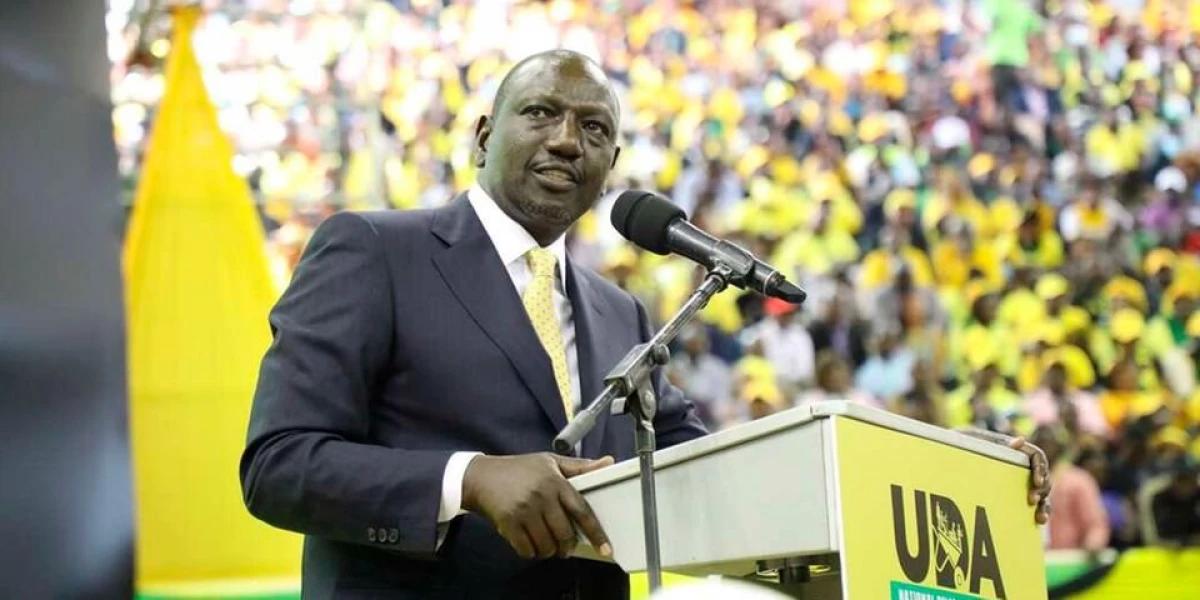By Faridah N Kulumba
Africa-Press – Kenya. Kenyan Presidential aspirant Deputy President William Ruto during an economic forum promised to deport Chinese in the country who are doing jobs that could be done by Kenyans if he is elected as the president in the coming election. Ruto’s comment sparked a mixed reaction on social media.
Kenya’s election
Kenyans will vote for their fifth president on 9th August this year. The hot race is between the number two in power D P Ruto and the leader of the opposition Raila who was endorsed by Kenyan President Uhuru Kenyatta of the Jubilee Party.
The vow
The former minister of agriculture Ruto vowed to deport the Chinese nationals who come to Kenya disguised as investors and workers, but they end up engaging in small businesses such as retail shops, supermarkets, and other small businesses which can be capably handled by Kenyans.
Concerns
Chinese have penetrated Kenya right deep into the villages. They have placed all the locals from small businesses. They have even gone ahead and flooded the country with mass-produced substandard products, an issue that worries Kenyan visitors to that country. Another issue is the Chinese sell trades goods and then after the traders have created a market for goods, the Chinese come to Kenya to engage in the same business, selling cheaply and driving the locals out of business.
Basis
According to Kenya’s law, there is a level of business that is not allowed for someone to come from a foreign country to do. Kenya like any other country signed bilateral agreements with different countries on what level of business or work is to be done by locals and which work is allowed, where one must have a work permit for foreigners.
Chinese locals living in Kenya
Chinese minors started settling in Kenya as early as the 15th century, these were believed to have been brought over by Chinese mariner, explorer, diplomat, fleet admiral, and court eunuch Zheng He during his ocean voyages. However, between the late 1990s and early 2000, the number of Chinese migrating from China to Kenya increased. Currently, there are more than 50,000 Chinese people in Kenya.
The new wave of Chinese migrants is attributed to Belt and Road projects in Kenya. The government of Kenya’s long-term development strategy, Vision 2030, has emphasized infrastructural investments, which it believes will lead to sustained economic growth. The government has appealed to China to find large-scale projects in the transport sector, and as a consequence of this, construction firms from China have emerged as significant employers in Kenya. While the Kenyan government contends with the ongoing burden of youth unemployment, it must also reconcile the ambiguities of China’s role in Africa and its implications for the labor market.
Kenyans’ dissatisfaction with Chinese
Some Kenyan merchants complain that Chinese expatriates selling imported goods are taking their jobs. Kenyans accuse Chinese traders of duplicating their products. Kenyans also claim that Chinese people have opened apparel factories in their country’s export processing zones, but there have been protests against poor working conditions. Many Chinese business people, especially those in the textiles industry, try to avoid directly dealing with locals as a result of this opprobrium, instead, they employ Kenyans as human resource managers and accountants.
Kenya and China trade relations
The relationship between Kenya and China has grown in recent years, especially during President Uhuru Kenyatta’s administration, with Kenya’s exports to China growing to USD227 million last year.
Biggest lender
China is also one of the biggest lenders to Kenya and is currently engaged in several infrastructural projects such as the Standard Gauge Railway (SGR), Nairobi Expressway, and bypasses. Konza City, smart city facilities, and industrial parks, among others.
Chinese exploitation
In recent years, the number of Chinese who are living in Kenya has increased. This brings fear that China spells doom for Kenya’s economy. Producers of manufactured goods, for example, face more competition from China both foreign and domestic markets. Others argue that China will exploit Kenya’s resources and leave it unable to industrialize. If the manufacturing sector fails to take off, it will be harder to move Kenyans out of poverty.
Does China benefit Kenya apart from being the lender?
China benefits Kenya by financing several projects and also offers affordable and diverse products for consumers. Kenyan retailers benefit from greater profits by selling low-cost chines products like plastic shoes or motorbikes.
Does Kenya benefit from exports to China?
The Republic of Kenya has not exported much in general to Chiana. The export to GDP ratio actually declined between 2005 and 2012, far from the norm for other high-growth economies. Kenyan manufacturers fail to export much to China due to higher transport costs and contend with increasing real exchange rates, making goods less competitive on global markets, In turn, Kenya’s exports fall, hurting net exports and resulting in a negative overall trade balance.
For More News And Analysis About Kenya Follow Africa-Press






